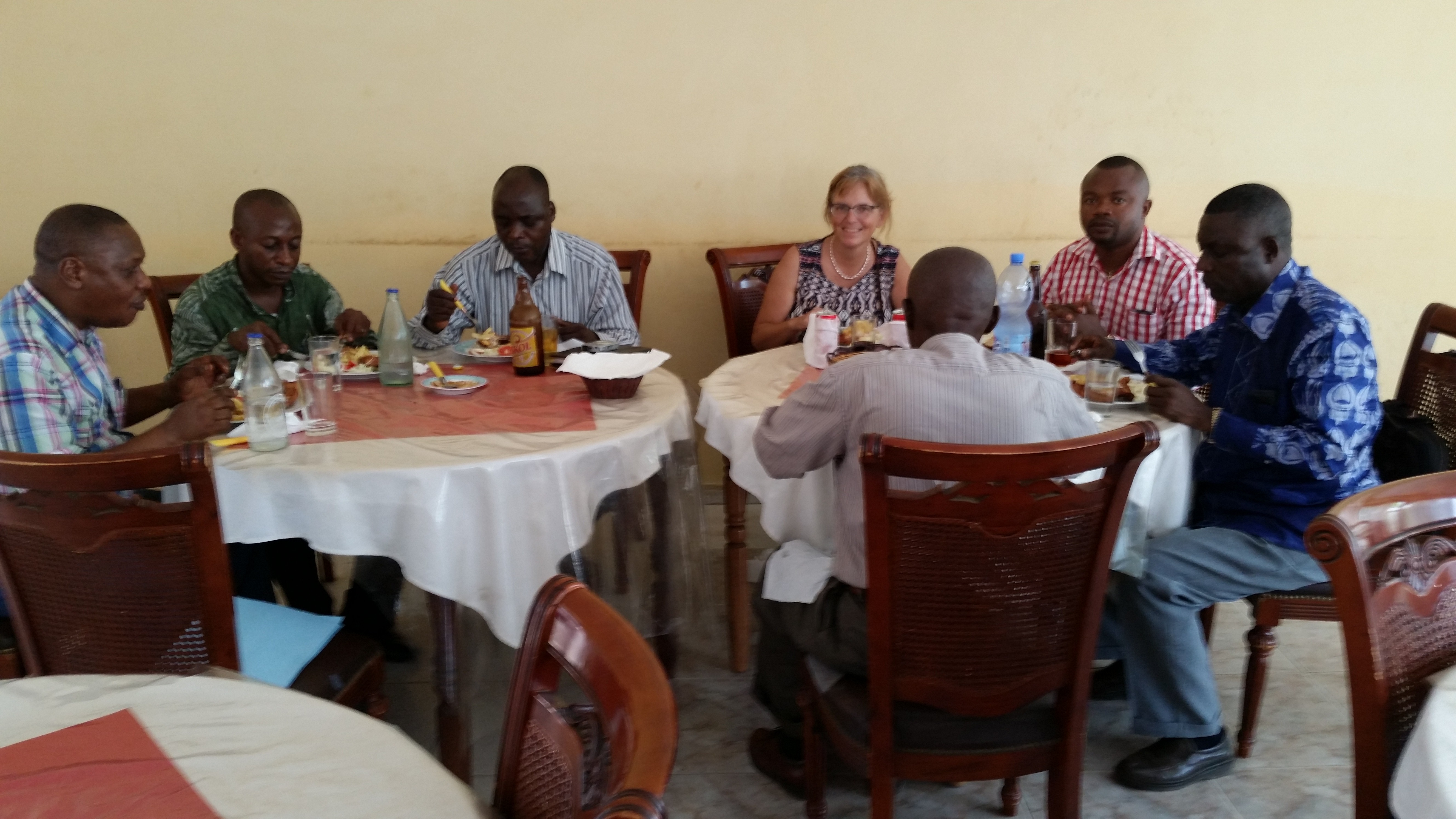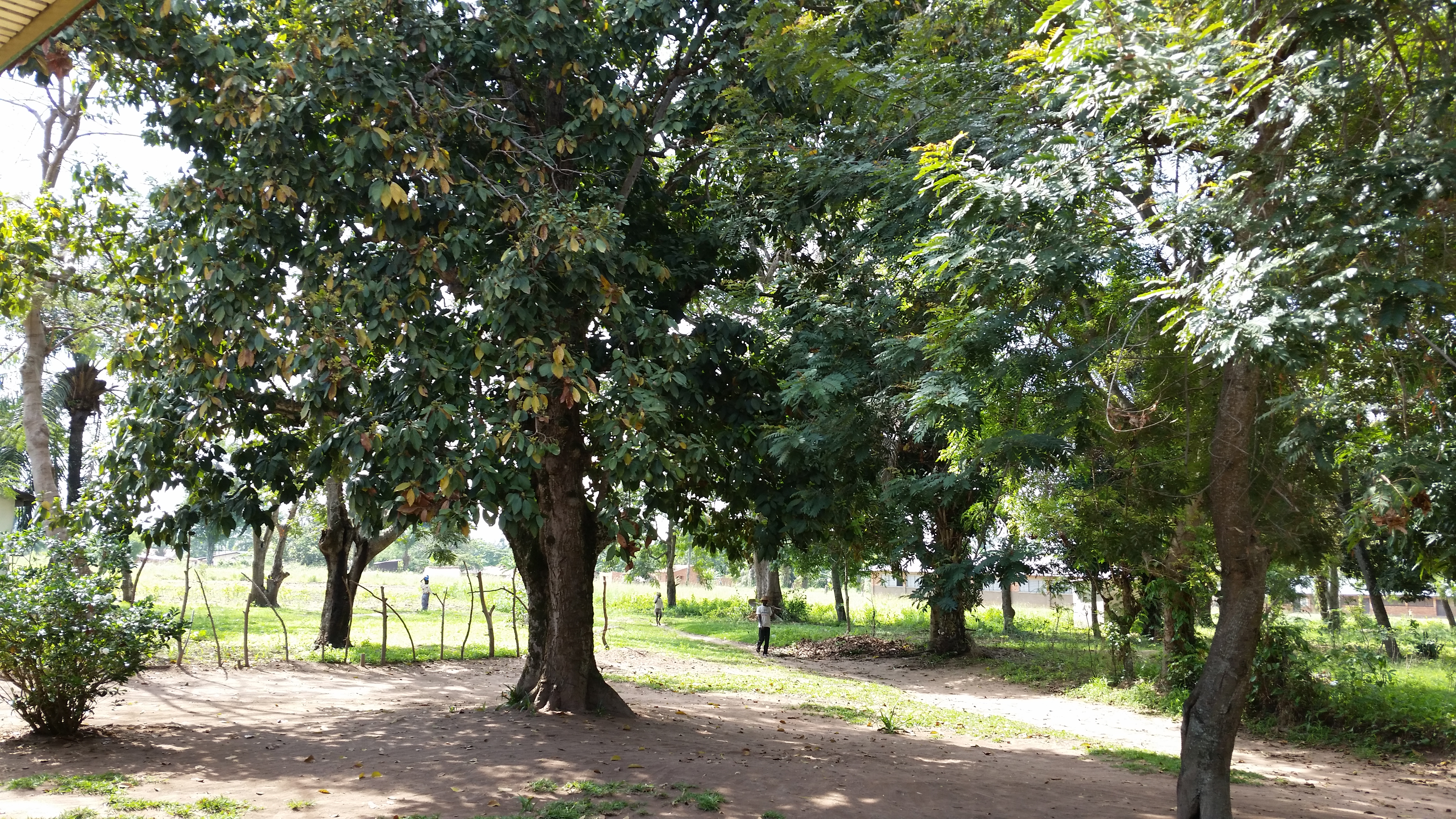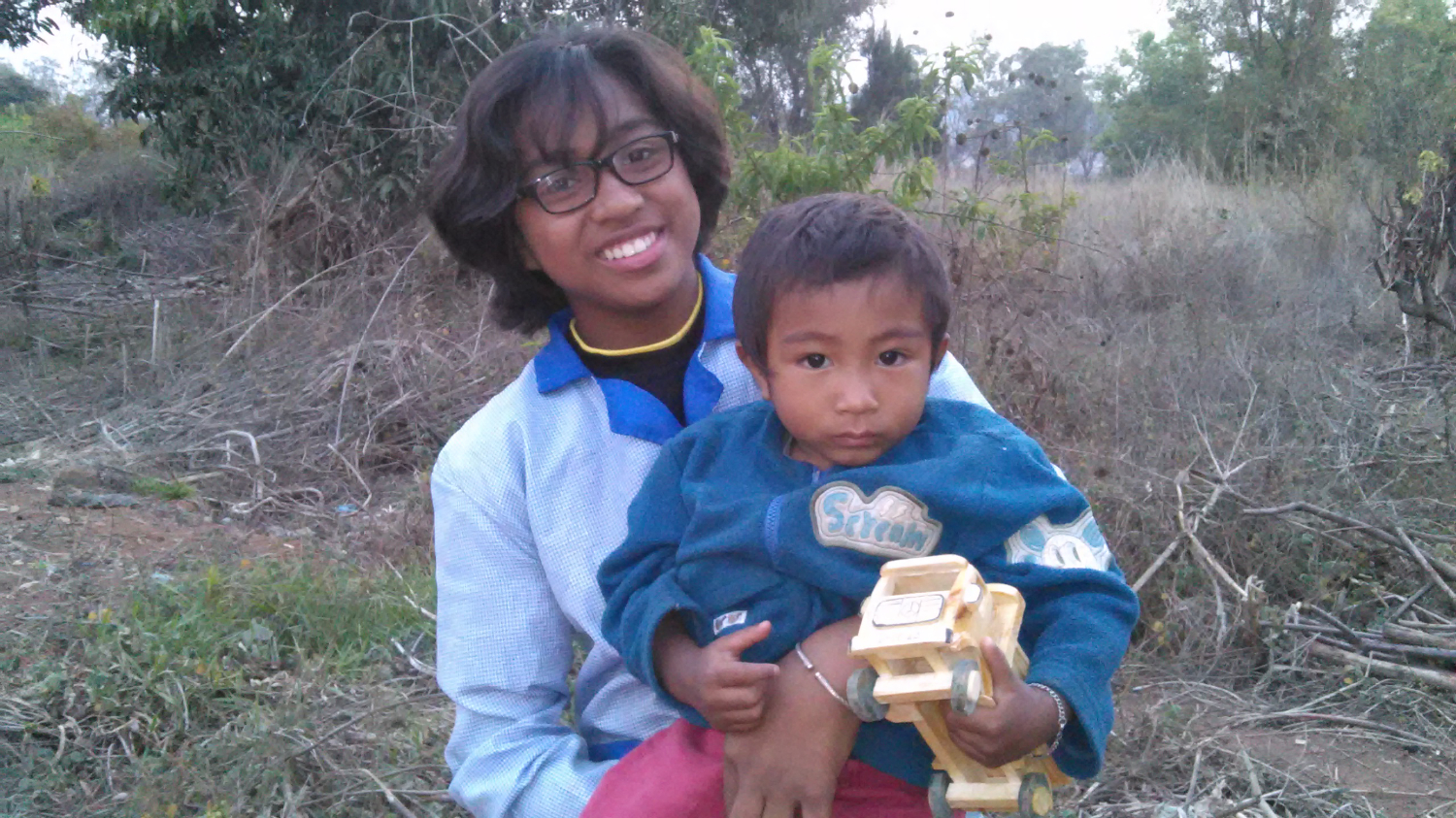A letter from Martha Sommers serving in the Democratic Republic of the Congo
October 2016
Write to Martha Sommers
Individuals: Give online to E200526 for Martha Sommers’ sending and support
Congregations: Give to D507157 for Martha Sommers’ sending and support
Churches are asked to send donations through your congregation’s normal receiving site (this is usually your presbytery).
Greetings friends and family:
Like today, Sunday morning four weeks back was a slow morning. I was drinking tea, listening to the birds, enjoying the breeze through the windows, and telling myself I had fifteen more minutes before needing to get ready for church in my new community of Tshikaji in the Democratic Republic of Congo. Then, two loud blasts came from the front of the house. I ran out to the front patio to look, trying to convince myself I was hearing strange thunder on this sunny day. The sounds of machine gun fire that followed forced me out of denial. My Congolese watchman, rapidly speaking Tshiluba, motioned for me to lock myself in and close all the windows. Even though I do not yet understand Tshiluba, I understood. Two days before we had gone through this same routine, but the gunfire was maybe a few kilometers away instead of 100 yards. I tried to convince my watchman to come in for safety. He said he would watch a little longer, then lock himself in an outside room when necessary.
Soon my phone rang. One of my mission co-worker colleagues told me it was time to grab my “to go” evacuation bag, and run to their house. We had already packed a car with supplies just in case. So, throwing a dress over my pajamas and shoving my feet into my running shoes, I grabbed my backpack and a water bottle, and ran across the yards to their house. Once there, calls came in with information and instructions. The military were coming down the roads from Kananga and up from the Angola border. Their target was the Kimwana Nsapu militia, who had taken over the local airport the previous week. All roads were blocked. We should shelter together in place. We sang hymns and recited the words to personal favorites for which none of us could sing the melody. After two hours of gunfire ended, we learned that the gunfire was mainly troops shooting warning shots into the air.
By the next day, the villagers that crowded into the hospital for shelter began returning home, as did those who had been working in their fields, and had run many kilometers to escape. There were stories of the military confiscating what they wished, including all the loose chickens. Government troops stayed in the area and set up multiple temporary road blocks. The hospital routine slowly resumed, and we even had a teaching session Monday evening. We were thankful for a lull in an escalating conflict.Discussion turned to a fear that outsiders may be targeted, and even Congolese who are not from the Kasai region were planning when they could evacuate. In addition, locals face increased risk when trying to protect outsiders. My Congolese colleague told me I needed to leave to preserve my life. I could come back when things have calmed down. Then I could help.
His words were a help as I boarded the first commercial flight out of Kananga when the airport reopened four days later. The mood was so different from when I had arrived just two weeks before. Now there were hundreds of soldiers; some scared, some aggressive, and some bored. Staff could be seen miming the deaths from machetes, clubs, and machine guns from the previous week’s takeover of the airport. There was a large burned out truck, and a tarmac littered with empty shells too numerous to count. Everyone is hoping there won’t be a full blown civil war.
Now, I wake up in a small duplex at Ivato seminary outside of Antananarivo, Madagascar. I am not surprised when thunder triggers the memories of mortar bombs, but disappointed that cool morning breezes and birds singing also trigger memories of that slow Sunday morning. Since then and now, I traveled from Kananga to Kinshasa, DRC, to Nairobi, Kenya, to here. So many have cared for me. I am so grateful for the Congolese Presbyterian Community, for my colleagues at the Christian Medical Institute of the Kasai (IMCK) for accompanying me until I boarded the first plane, and PC(USA) for making all the arrangements. I am grateful to the Mayfield guesthouse and Tumaini counseling services for sharing their skills in debriefing after traumatic events. Thank you to those of you who give to my financial support. Please continue! Evacuations, including last minute plane tickets, are expensive, and possible because of your generosity. Thank you all for your prayers and encouragement. I am gradually less tense and usually sleeping better. As I take weeks to recover from this traumatic experience; my heart goes out to the so many who live through war without escape, and to those who do not receive counseling and support after leaving war zones.
Madagascar is a francophone African country where PC(USA) has strong partnerships. Here I can continue to study French for a few months, and meet with doctors who work for the church here while praying for DRC, that the safety situation will improve so that I can return to Tshikaji. I live on one side of a duplex, the other side occupied by Pastor Benza and his wife, Pastor Ari, and their growing family. Pastor Benza told me I was a gift from God to their family. Pastor Ari checks on me if she has not seen me for a day, and converses through my window when she is in a rush. Their children are good at making us all laugh. We speak French for my practice, English for their practice, and a bit of Malagasy because we are in Madagascar. Mission co-workers Elizabeth and Dan Turk, who live in the next house, have been so wonderful in settling me in, and introducing me to their long-time friends and colleagues in PC(USA)’s partner church, Fiangonan’i Jesoa Kristy eto Madagasikara (Church of Jesus Christ in Madagascar). Pastor Juliette, the director of the seminary, lives with her family nearby. Certainly a sweet neighborhood with support to heal.
“Suddenly there was with the angel a multitude of the heavenly hosts praising God and saying Glory to God in the highest and peace on Earth to those of good will.” Luke 2:13-14
This year I am acutely aware that these words were spoken to a people living under King Herod. In the days that followed, Jesus and his family would become refugees, and Herod’s army would attempt to kill all the children under two years old. Jesus was born into a time of senseless violence and survived because he was able to find safety and grow through toddlerhood while a refugee. May each of us celebrate Christmas by committing ourselves to work for peace, welcome refugees, and comfort victims of violence.
I ask you to especially pray for peace in the Democratic Republic of the Congo. I continue to be in contact with my new friends there, who are fearful that there will be increased violence come late December, when elections are supposed to take place.
Joyeux Noël et bonne année,
Martha
![]() You may freely reuse and distribute this article in its entirety for non-commercial purposes in any medium. Please include author attribution, photography credits, and a link to the original article. This work is licensed under a Creative Commons Attribution-NonCommercial-NoDeratives 4.0 International License.
You may freely reuse and distribute this article in its entirety for non-commercial purposes in any medium. Please include author attribution, photography credits, and a link to the original article. This work is licensed under a Creative Commons Attribution-NonCommercial-NoDeratives 4.0 International License.


